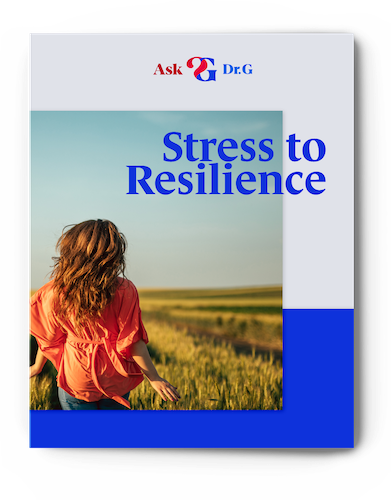 My 7 year old boy has started to “self punish” the extreme. When I send him to his room for a few minutes for example for continually not listening, he ends up saying staying there and not coming out because “He’s bad; He deserves to never come out again…” We have the same issue with almost all punishments. If I say “Next time you XXXX I’ll have to take away your allowance this week.” He runs and get his piggy bank and will spend the next 3 hours trying to give me all his money while he beats himself up and cries. Talking about it doesn’t seem to work. What do I do? I still need to correct him when he’s out of line, but how do I keep him from self punishing to the extreme?
My 7 year old boy has started to “self punish” the extreme. When I send him to his room for a few minutes for example for continually not listening, he ends up saying staying there and not coming out because “He’s bad; He deserves to never come out again…” We have the same issue with almost all punishments. If I say “Next time you XXXX I’ll have to take away your allowance this week.” He runs and get his piggy bank and will spend the next 3 hours trying to give me all his money while he beats himself up and cries. Talking about it doesn’t seem to work. What do I do? I still need to correct him when he’s out of line, but how do I keep him from self punishing to the extreme?
Anonymous, in PA
This is a surprisingly common issue for children. When kids feel guilt or remorse they don’t know how to make that feeling go away.
Your son has learned the important cycle of misbehavior – consequence – reconciliation. He is uncomfortable with feeling “on the outs” with you, and wants everything to be ok again. He’s looking to speed the process and get back to the moment when all is wonderful between you, so he tries to jump to the punishment phase.
This is complicated by a couple of things. One is that he truly feels remorse for what he’s done and isn’t sure how to move through that without the punishment part. The second issue is that he is frustrated by his uncertainty – he knows he may very well make this mistake again, and likely feels a little out of control. That powerlessness makes him feel more guilty and like he is “always bad” even if the amount of time he is in trouble is really a small percentage of his day.
I am certain that, after an infraction or a warning you reassure him of your love. Unfortunately, saying “You’re OK, buddy. We’re OK, I love you” is not going to break this cycle in that moment.
Your son is in the black and white reasoning phase of his intellectual development. This is good news because he is right on target! This is bad news because he is judging himself by these strict and unreasonable standards. Good kids are always good, so if he does something bad he believes at that time that he must be bad.
That’s about enough psychological mumbo-jumbo, yes?
You’re absolutely right, you can’t stop correcting his behavior. Then you would allow his self-punishment to manipulate you and that would be a terrible lesson for him. You need to keep having rules and enforcing them.
So, what can you do? Give him some other options.
As he grows, and as an adult, he will have times that he feels this same mix of emotions. To be resilient he needs to develop some tools to handle these feelings in acceptable ways that actually make him feel better.
When your son is not in trouble, talk to him about his frustration. As a seven year old, he is likely reading some, so have him make a list (with words or pictures) of what he is allowed to do when he is feeling this way. Here are a few suggestions, but you should find what works for your family:
- Change the self-talk. Tell him he may apologize but he may not “insult” himself. That is your son he’s insulting and you don’t want to hear it! Explain that it is not his job to give the punishments, it’s your job. He can express his feelings once, but then needs to move on to something on the list.
- Draw or write an apology note. No matter how small or large his mistake, this gives him a way to focus on the person he upset instead of himself, and express his remorse.
- Make a gift of some kind. This is a great way to use some creativity making someone else feel good, and he will probably learn that this makes him feel better as well.
- Spend some time alone. Separate from a punishment, he can go hang in his room or some comforting place.
- Use that energy as exercise. Running off his mad, even if it’s at himself, is a healthy way to get these feelings out. A punching bag in your basement, a jump rope, push ups or sit ups are healthy ways to push out his mood.
- Do a good deed. When he is feeling like he is a disaster as a person, have him do something kind or helpful for the world. Clean up some litter, rake for a neighbor, do an extra chore around the house.
- Create art or music or stories. These are excellent media for ridding ourselves of negative emotions.
I hope this is useful. If any of my readers have suggestions about this painful but normal developmental phase, please tell us what else might work!




6 thoughts on “When a Child’s Guilt Goes Overboard”
Perhaps when you determine what his punishment is you should also tell him what he should do at the end of the time or the extent of the punishment. Such as “go to your room for 5 minutes, and at the end of that time my kitchen timer will buzz. When it buzzes I want you to come out and we will talk and I’ll have a hug for you.” Then if he does not come out go in and talk about positive things as you gently walk him out of the room.
I agree with Dr. G’s suggestions. They are all good and can be used at the opportune time.
Carol, that is a great idea!
It seems to me your son has misplaced his focus from the behavior to the punishment. It seems that punishment is not changing his behavior but that he is very cued-in to changes in your relationship. This is a good thing. Punishment is just a way to get kids to care about a behavior as much as you do. Perhaps it would help to focus less on punishment for problematic behavior and more on why/how that behavior affects the people he loves and to show him how even when he exhibits problematic behavior, he can correct the matter through his positive behavior (an apology and then not repeating the behavior) rather than using self punishment to try to correct. That helps him see that by controlling his behavior, he can maintain a positive relationship with you.
Melissa, that is a really beautiful way of explaining the good his attitude can achieve. Thank you.
Hi,
Just curious if any of this helped? I have a 6yo who is doing the same type of thing. I am a little disturbed that some have said he may be exhibiting low self esteem or perfectionist tendencies. I want to raise him up away from this.
Thanks, EG
wow I wish my parents knew about this stuff! I did the same thing and my parents did nothing about it and i still catch myself going overboard with myself!
Comments are closed.